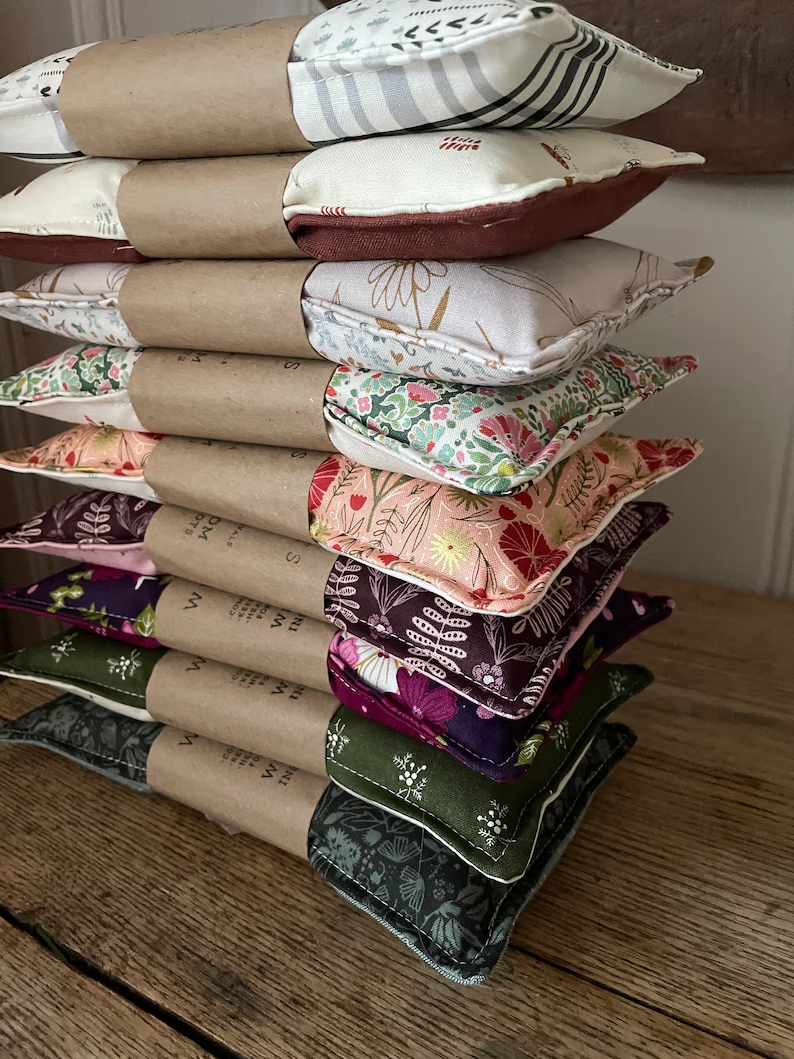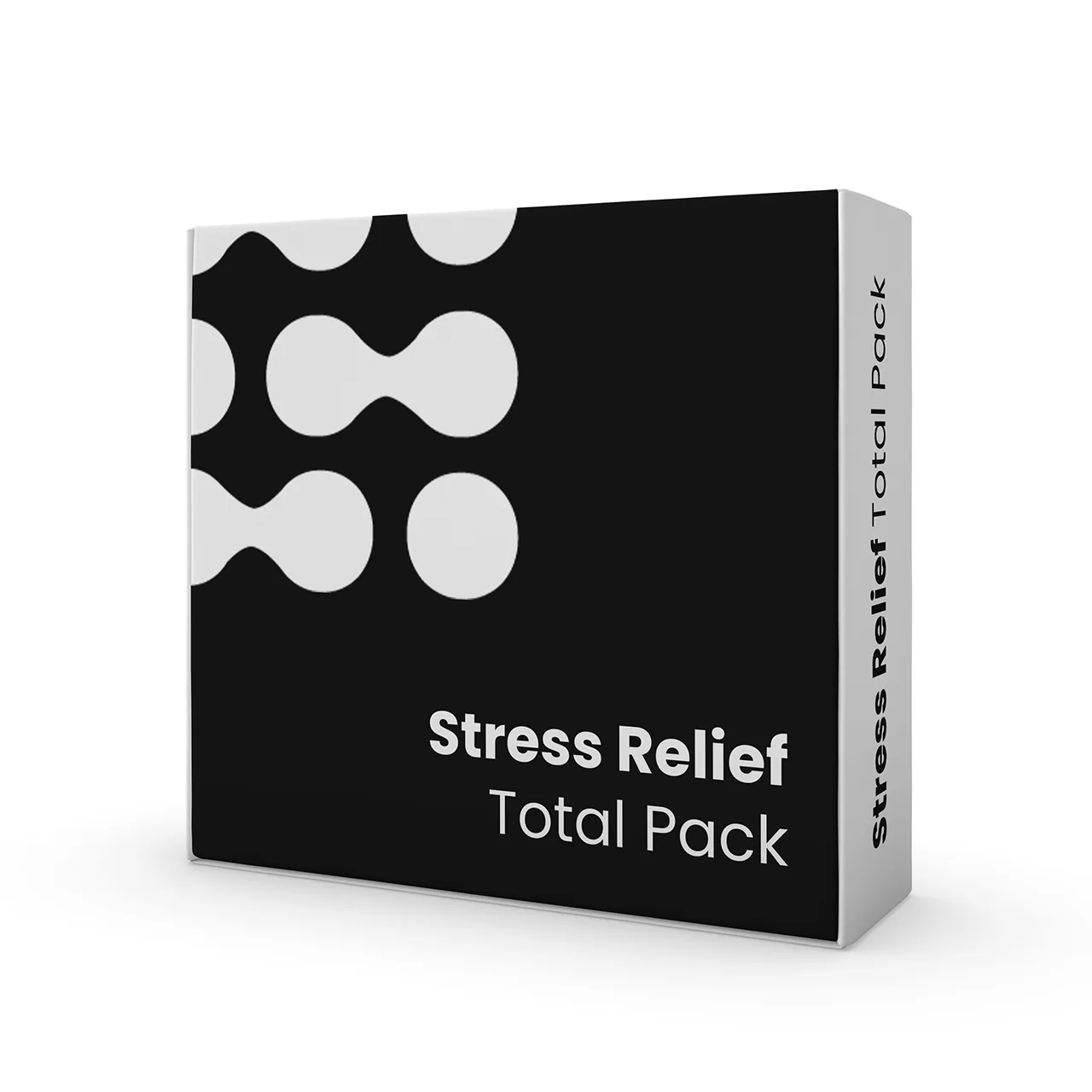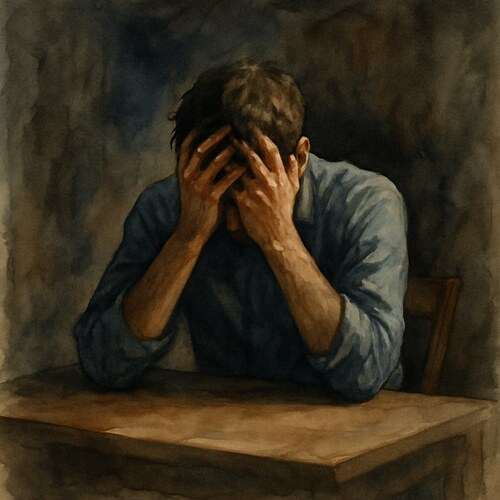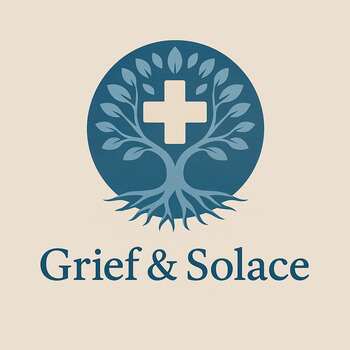Grieving IBS: When Fear and Pain Follow Every Meal
Grief with Irritable Bowel Syndrome (IBS) is a constant negotiation, between hunger and hurt, between planning a life and fearing the body that won’t cooperate.
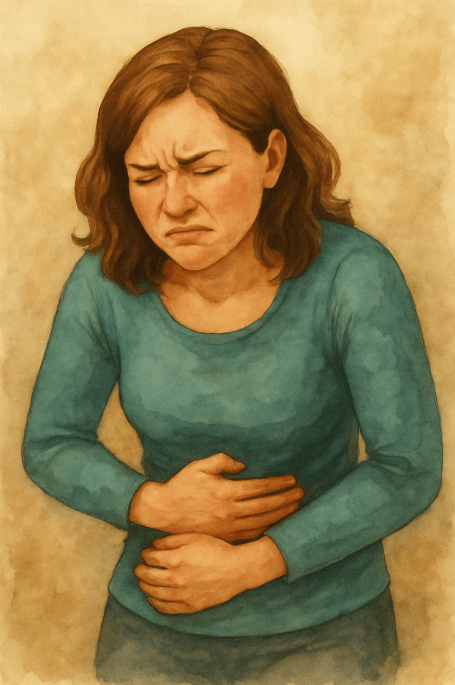
This post blends real grief with grounded knowledge. It isn’t clinical. It isn’t distant. It’s meant to sit beside you—not above you. The story you’ll read is meant to reflect what so many feel when living through or witnessing this condition: confusion, exhaustion, and quiet forms of courage.
If what you read feels familiar, please speak with your doctor. Your pain deserves more than silence.
We Stopped Making Dinner Plans and Started Making Exit Strategies
She used to love exploring new restaurants, dragging me to hidden Thai gems and food trucks with menus scrawled in chalk. We maintained a list on the fridge of every place we hadn’t tried yet. She called it “our culinary map.” But that map has remained unchanged for years.
Now, she navigates every menu as if it were a minefield. She looks for hidden onions, garlic, gluten, and dairy—things that never used to matter but have taken on an ominous significance. Before we even sit down, she’s checked out the bathroom…twice.
🧠 Symptoms:
Abdominal pain, cramping, or bloating related to bowel movements
Changes in stool appearance (loose, hard, pellet-like, or watery)
Changes in bowel movement frequency
Mucus in the stool
Sensation of incomplete bowel evacuation
Gas and bloating
More severe signs (require further evaluation): rectal bleeding, unexplained weight loss, anemia, persistent pain, or nighttime diarrhea
At first, I struggled to understand. Her tests came back normal. No celiac disease. No Crohn’s. No ulcers. Just three letters handed to her as if they were a consolation prize: IBS.
Doctors said it was “functional.” They reassured us that nothing was broken, that she simply needed to “manage stress.” As if she hadn’t tried everything—yoga, therapy, cutting out caffeine, journaling, following a low-FODMAP diet, taking probiotics, sipping peppermint tea, and whispering prayers into the sink at 3 a.m. while her stomach churned like a boat caught in a storm.
What they didn’t warn us about…what no one saw coming…was how it would consume her.
We stopped making dinner plans and began strategizing exits. She kept a change of clothes in the car, tied sweaters around her waist even in July, and declined invitations that didn’t guarantee a private bathroom or a short drive home.
Complications:
Hemorrhoids from chronic constipation or diarrhea
Poor quality of life due to persistent discomfort and social limitations
Work or school absenteeism
Depression and anxiety
Causes:
Intestinal muscle contractions (stronger or weaker than normal)
Nervous system sensitivity in the gut
Post-infectious development (after gastroenteritis)
Early-life trauma or chronic stress exposure
Altered gut microbiota (bacterial overgrowth or imbalance)
And every time it flared up, I could see her eyes drift away, somewhere between shame and frustration. Not just because of the pain, but because she felt unreliable.
She apologized often. For canceled plans, for pulling over on road trips, for turning a night out into a night in.
But she had nothing to apologize for.
Her gut was screaming through nerves she never asked for, a battleground between brain and body where neither side surrenders, and no one emerges victorious.
And yet…she kept showing up. Cooking at home, packing safe snacks, and facing the occasional meal out with a quiet courage that looked like scouting for exits while laughing at the menu.
IBS doesn’t kill you. But it shrinks you, trying to convince you that your life should remain small and close to bathrooms. And she fights against that, every day, with every bite, every plan, and every gentle
“maybe we eat in tonight.”
I watch her live inside those decisions…
And I don’t miss the restaurants…
I miss her not being afraid.
IBS didn’t take her life—but it took her ease, her spontaneity, and the joy of sitting through a meal without a silent countdown.
Risk Factors:
Age (typically under 50)
Female sex
Family history of IBS
Mental health conditions (anxiety, depression)
History of abuse or psychological trauma
triggers:
Certain foods (wheat, dairy, citrus, beans, cabbage, carbonated drinks)
Stress (often exacerbates symptoms)
Hormonal changes (especially in women)
Gastrointestinal infections or inflammation
📘 Diagnosis & Treatment
diagnosis:
Based on Rome criteria (weekly abdominal discomfort for 3+ months, plus symptom patterns)
No definitive test; diagnosis by exclusion
Types: IBS-C (constipation), IBS-D (diarrhea), IBS-M (mixed), IBS-U (unclassified)
May require colonoscopy, CT scan, upper endoscopy, stool studies, breath tests for bacterial overgrowth, or tests for food intolerance
treatment:
diet_and_lifestyle:
Identify and eliminate trigger foods
Adopt low-FODMAP diet
Increase fiber intake (soluble fiber preferred)
Hydration and regular meals
Regular exercise and adequate sleep
Stress reduction techniques (yoga, meditation, journaling)
medications:
Fiber supplements (psyllium)
Laxatives for IBS-C (PEG, milk of magnesia)
Antidiarrheals (loperamide, bile acid binders)
Antispasmodics (dicyclomine, hyoscyamine)
Tricyclic antidepressants (for pain and diarrhea-predominant IBS)
SSRIs (for IBS with constipation and co-occurring depression)
Neuropathic pain agents (pregabalin, gabapentin)
specialized_ibis_medications:
Alosetron: for severe IBS-D in women (with caution)
Eluxadoline: reduces diarrhea via gut nerve regulation
Rifaximin: non-absorbable antibiotic for IBS-D
Lubiprostone & Linaclotide: for IBS-C (enhance fluid secretion)
alternative_treatments:
Peppermint oil (enteric-coated for IBS-D)
Probiotics (strain-specific, not universally effective)
Acupuncture and hypnosis (variable results)
Cognitive behavioral therapy or counseling for stress-based symptoms
I know this is heavy, and I understand that the road ahead may feel like a tangle of loss and unanswered questions. But please hear this: you are not broken because you are hurting; you are not weak because you are afraid. You are living through something real, and survival itself is a kind of grace. You are allowed to struggle, you are allowed to hope, and you are allowed to not have all the answers today. Whatever comes next, you do not face it empty-handed; you carry every moment of love that shaped you, and that will always be enough to keep going.
🎀 Gifts to help With IBS (Irritable bowel syndrome)
🏥 Everyday Comforts for Everyday Battles
Managing IBS (Irritable bowel syndrome) often means needing a little extra help.
Sometimes it’s about restoring dignity, ease, or simply getting through the day with less pain.
These carefully chosen tools aren’t just items; they’re small bridges back to living.
This section is about finding practical support, never shame.
Reusable Heat Patch – Relief for a Stomach That Won’t Settle Down
IBS flare-ups hit without warning—and heat can bring fast relief. This wearable patch provides targeted warmth to the abdomen, helping reduce cramping and spasms without drawing attention. Because when your gut is screaming, comfort should be silent, fast, and easy.
🌿 Paths to Healing Beyond the Map
Sometimes traditional medicine isn’t enough.
If you’re exploring gentle, alternative options to help with IBS (Irritable bowel syndrome),
you might find comfort in plant-based compounds like **CBD or CBG**.
*This section is not medical advice, just a door left open.*
Stress Relief Pack – Soothing the Gut-Brain Spiral
IBS doesn’t just live in the intestines—it rides shotgun with anxiety, stress, and sleep disruption. This Total Pack blends CBD with gut-calming botanicals and nervous system support to help ease that cycle. It’s not a cure. But it might help you get through the day without watching every bite or scouting every bathroom.
Need a Different Path Forward?
Every journey through grief looks different. Choose the next step that speaks to where you are now:
When You're Ready to Start Healing
Healing doesn’t mean forgetting.
It means finding small ways to carry your grief with strength and grace.
These are the stories, tools, and gentle steps to begin walking forward…at your own pace.
When You're Still in the Thick of It
Sometimes healing feels like a lie.
If you’re not ready to move on…if the pain still roars louder than the world wants to hear…this is the place where you’re allowed to feel it.
No sugarcoating. No pretending. Just truth.
When You're Holding on to Who’s Still Here
Grief reminds us to love louder.
If someone you love is still with you, this is your place to celebrate them, honor them, and create new memories while there’s still time.
Joy and sorrow can live side by side.

